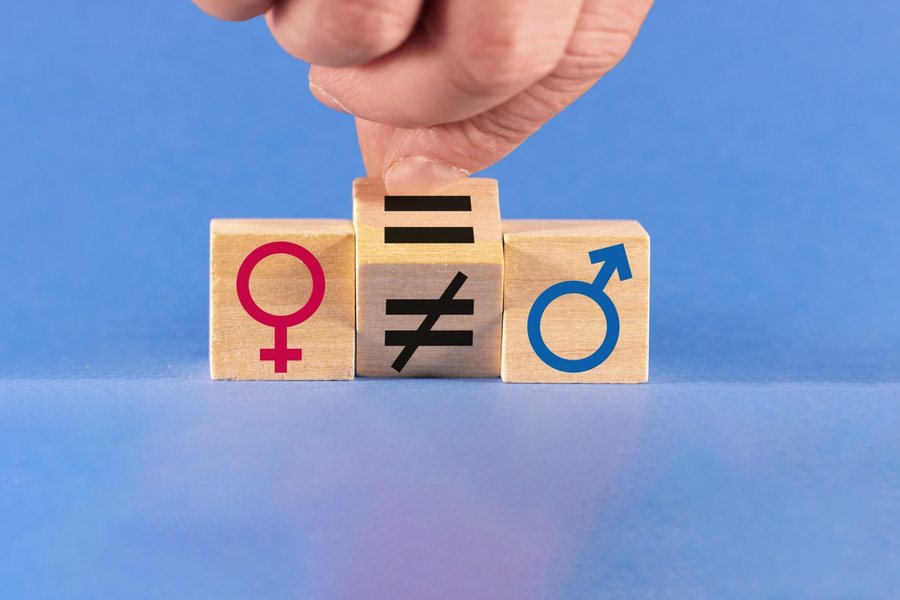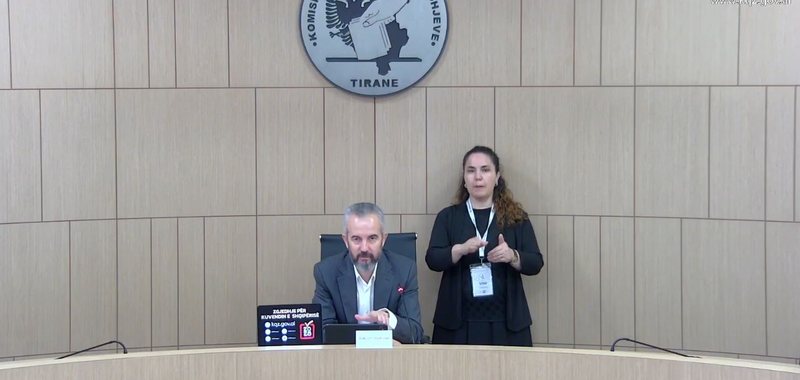Gender equality and elections in Albania!

Since 2008, Albanian legislation guarantees at least 30 percent representation of the underrepresented gender in political and public decision-making positions. This was also reflected in the Electoral Code, adopted that same year. However, the amendment to the Electoral Code in 2012 made further improvements to strengthen the implementation of the minimum quota for women candidates in general elections to 30 percent. At least one third of candidates of the underrepresented gender must be nominated on each list.
Considering the ambiguity of the Code regarding the ranking of women on candidate lists, the CEC interpreted that in every three candidate names (starting from number one on the list) at least one must be a woman.
Article 163, which deals with the calculation and distribution of votes based on a formula, also guarantees a gender quota of 30 percent on the list of elected candidates. Sanctions for non-compliance with gender quotas until 2020 consisted of fines, which were considered ineffective, as some political parties preferred to pay fines rather than comply with the quotas.
In 2020, the Constitution and the Electoral Code were amended again, leading to additional improvements. The Electoral Code introduced a special provision establishing a 30 percent gender quota for all levels of the electoral administration (Article 4). The CEC has the authority to monitor and support the implementation of gender equality principles by all stakeholders involved. A very positive development in 2020 was a new sanction, which gives the CEC the authority to reject lists of candidates of political parties that do not respect the gender quota, replacing the previous system of sanctioning through fines.
A very positive development in 2020 was a new sanction, which gives the CEC the authority to reject candidate lists of political parties that do not respect the gender quota. Until then, the fine system was the only sanction that could be applied to political parties that did not respect gender quotas. And in fact, in some cases, some political parties preferred to pay the fine instead of respecting the quotas, as happened during the 2017 general elections, where the CEC fined two political parties for not respecting the gender quota requirements in their candidate lists.
The Electoral Code also aims to address gender inequality in elections by taking measures to reduce and eliminate third-party voting and family voting. Furthermore, the law requires authorities to collect and publish statistics on voters disaggregated by gender, which enables gender analysis of electoral participation and taking measures to encourage participation in the future.
These legislative developments contributed to positive results during the general elections in April 2021. The main political parties tried to significantly increase the number of women as candidates in the campaign and the mandatory quota for women was exceeded in most candidate lists. Among the elected members of the Assembly, 90 were men (64.3%) and 50 were women (35.7%), the highest number of women in its history. The Speaker of the Assembly is a woman and as of August 2024, 9 out of 17 ministers are women (53%).
With the recent amendments of 2024 to the Electoral Code, provisions have been introduced to guarantee a 30 percent gender quota. More specifically, according to Article 67/6, for each electoral zone in the elections to the Assembly, one in every three names of candidates on both lists (the multi-name list with a fixed order and the multi-name list subject to preferential voting) belongs to the less represented gender and one in every three names on the list must belong to the less represented gender.
Also, according to Article 163/2, the candidates of the multi-name list who are subject to preferential voting are re-ranked based on the highest number of preferential votes for each candidate. In cases where the re-ranking does not result in one in three names belonging to the less represented gender, starting from the head of this list, then the third candidate on this list and subsequently one in three names thereof belong to the less represented gender according to the number of votes that the latter have received. The purpose of this provision is to ensure the implementation of the gender quota at the level of the electoral result in the preferential lists and not only at the level of the composition of the lists.
The amendments to the Electoral Code in February 2025 did not address provisions on gender representation.

Agron Shehaj votes: Today the voice of the people is heard, vote for change
The Chairman of the Opportunity Party, Agron Shehaj, exercised his right to vote this morning, conveying a message to all citizens. Accompanied by his......

The financial aspects of the election campaign!
The financial aspects of the election campaign are regulated by the Electoral Code and the Law on Political Parties. The latter also regulates general......

Celibashi: So far 185,679 envelopes from the diaspora, expected to reach 200 thousand
The Chairman of the Central Election Commission, Ilirjan Celibashi, has revealed some data regarding the diaspora voting process. He announced in a statement......

Voting/Turnout as of 10 a.m., 13.54% - Lower than in the 2021 parliamentary elections
13.54% of eligible voters have gone to the polls by 10:00 am on Sunday. Official data from the Central Election Commission shows that 1983 Voting Centers......

Celibashi reacts to the voting process so far!
Ilirjan Celibashi: "At this moment, no voting center is unopened or blocked. 8% of the VCs opened late, between 7:00 - 8:00. In 5%, not all members were......

Doshi after the vote: PSD's result will be a surprise, I will not form a coalition with Berisha
A few minutes ago, the leader of the Social Democratic Party, Tom Doshi, exercised his right to vote. The Social Democratic leader stated that this is a very......

Election turnout, from 98% to 46%/ Analysis: What is expected to happen in 2025 and what are the factors that will influence it?
Albanians have shown a steady decline in interest in voting in parliamentary elections over the past three decades. From the extraordinary enthusiasm of the......

Prime Minister Edi Rama votes!
Socialist Party Chairman and Prime Minister Edi Rama, accompanied by his wife Linda Rama, voted at the "Ymer Lala" school in Surrel. ...


















